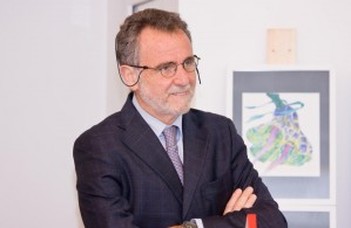"There is a great need of true knowledge at service of the common good"
You have collaborated with ELTE, the Institute of Psychology, for several decades. Could you mention some experiences and events from these years?
In the 1980 and 90s, I met with Professor Zsuzsanna Kulcsár and together, we organised workshops and an earlier EAPP summer school for Italian and Hungarian psychology researchers. In the early 90, a young researcher, Sandor Rozsa, from the Institute of Psychology, visited me in Rome and then, under my direction, he translated the BFQ test into the Hungarian language. Recently, I have been working with Professor Attila Oláh and Andras Vargha at the Faculty of Education and Psychology to assess the validity of the Positivity Scale in Hungary and to investigate how positivity is associated to socioeconomical conditions. The results of our collaboration turned into papers that are now under review and in progress.
Your research focuses on the fundamental issues of personality. Could you explain in some sentences the topics which you researched?
I have been interested to study Personality development and functioning and thus to address the whole organization of structures and processes and the various features that account for individuals’ identity and for their interactions with the social environment This led to examine the functions of traits, abilities, motives, values and self-beliefs and their interconnections paying particular attention to the cultural and social context in which they display their action.
Over the course of all my carreer, I have addressed the study of personality functioning and adjustment through different strategies of research, including quasi-experimental, crossectional and longitudinal studies.
I studied aggression, prosocial behaviors and successful deveopment with a special focus on how traits, values and self-beliefs may account for their regulation. This led to the development of several new measures to assess relevant individual differences and then to point at Positivity as a basic attitude that stays at the core of self-esteem, optimism and life satisfaction and that proved to contribute significantly to individuals’ health, happiness and success.
In the last decades, my research extended to topics, like the personality determinants of political preferences and participation, that were congenial to my early education in Political Sciences. The book I did with Daniel Cervone (Personality. Determinants, Dynamics and Potentials. published by Cambridge University Press in 2000) and the book I made with Michele Vecchione (Personalizing politics and realizing democracy. published by Oxford University Press in 2017) well attest which have been and still are my research interests.
The many publications I coauthored with several colleagues and students document that most of my achievements have been due to their loyalty and creativity.
You enriched the methodological toolbox of personality psychology by developing your methods. Among these, the BFQ test is one of the most popular and valid instruments used in personality diagnostics worldwide. What does this test measure?
It has been conceived in accordance with the FFM (with two facets for each of the Big Five) and subsequently updated. Currently, we have been working on a third edition that aims to provide a more comprehensive instrument to assess major individual differences in personality that may have an impact in various applied settings like health, education, work, economy and politics.
You had a decades-long friendship and collaboration with world-renowned psychologist Albert Bandura at Stanford University. Could you share some memories about this cooperation?
We have been working together on Self-efficacy beliefs and Moral Disengagement thanks to several grants from US and Italy that allowed to develop a long longitudinal study (among children of Genzano, in Italy) whose findings turned into several important scientific publications. Our friendship lasted forever, and I am particularly grateful and indebted to Albert Bandura for what I learned and for the scientist and the person I became. We discussed a lot while examining our findings and writing our papers. We shared not only ideas but also desires about psychology and life.
What would be your advice for the young generation of psychologists?
Be curious, courageous and fair. There is a great need of psychological science and even more of true knowledge at service of the common good.

